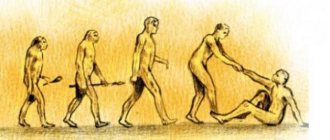What is important to you and what is most important in life? Each person who is asked such a question will answer it individually. One will say that the most important thing in life is career and wealth, another will answer that this is power and status in society, the third will give the example of family, relationships and health. The list could go on for quite a long time, but we just need to understand that what is important to a person controls his actions. Based on what his priorities are, he will make friends, get an education, choose a place of work, in other words, build his life.
And the topic of this article is life priorities, or, more precisely, life values. Next we will talk about what they are, what kinds of values there are, and how their system is formed.
Definition of the concept and signs
What it is?
Life values are the views and beliefs that a person adheres to when committing his actions.
Based on his own life values, a person makes a decision about what is acceptable to him and what is not.
Despite the fact that people themselves determine life guidelines for themselves , in the process of constant existence in society they gradually begin to automatically obey their own guidelines and act in accordance with them.
This is explained by the fact that the existing norms and rules that a person adheres to are inherent in himself.
If he betrays his own views and beliefs, this will invariably lead to personality conflict, depression and low self-esteem.
List of main features:
- Significance . Attitudes are of great importance to a person; he values them and tries to comply with them.
- Mindfulness . A person consciously adheres to the principles and norms of behavior once chosen. The conformity of his actions with existing internal attitudes is the result of self-control and self-discipline.
- Activity and self-sufficiency. A person's beliefs are always present in him. To comply with his principles, a person does not need to listen to the opinions and advice of other people.
- Positivity . Values, unlike responsibilities, always carry a positive attitude. A person may be burdened by certain responsibilities, for example, the need to support children. At the same time, it is impossible to be burdened by such a value as respect for the interests of the child.
A life position that affirms the value of a person as an individual is called humanism .
How to identify true values: advice from a psychologist
Life values are what determine the lines of our lives and give us the strength to act. At a public webinar of the Institute of Further Professional Education for Social Workers, business coach and psychologist Svetlana Potutkova spoke about several methods for determining values
Where do our values come from? Environment, family, upbringing - yes, all this influences their formation. But no matter how we “educate” values, they often don’t seem to listen to us. They just don’t take root. As psychologists say, they are “interiorized,” pass through an internal filter, and then something special really comes out. As a result, each person has a formed value system, where one of the values is a priority and all others are subordinated to it.
There are universal human values: health, family, material well-being - but they are not inherent to everyone, and the combination of these values is always individual. And it is values that largely determine a person’s life path. They are our key source of energy. This is why it is so important to recognize the values of your own, those of your loved ones, your colleagues, and your employees. How to identify values? There are several methods for this.
METHOD ONE: MOMENTS OF JOY
In this exercise, you or your employees are first asked to remember the moments of greatest joy, the happiest moments in your life, and make a list of these experiences. It could be a bike ride, falling in love or a parachute jump. Then you find out what exactly you were experiencing in these moments, why they are dear to you - well, for example, freedom. And explore these values: sometimes something unexpected may end up on the list.
It can be useful to understand how each value is being realized in your life now - to do this, give each value a numerical value on a 10-point scale. Sometimes there may be conflicting values: on the one hand, “the thrill of a winner,” and on the other, humility.
METHOD TWO: AUCTION
The presenter distributes a conditional million to each participant in this exercise. And he plays out lots of valuables. The only task is to count your total. If you bought something valuable and it is now yours, subtract its value from the million!
Let's say that the following are at stake: order, active recreation, personal knowledge, the beauty of nature, own housing, harmony of relationships. What will you buy and to what extent are you willing to increase the price?
METHOD THREE: DESERT
Imagine that you need to return to your homeland - but to do this you need to go through the desert.
First you will have to go through a checkpoint manned by military personnel. At the same time, you have five valuables in stock. We write each value on a separate sticker. The first and most important thing is to be at the top. The least important one is at the bottom.
The military asks for one thing of value - give it up to enter the desert. You walk along it and robbers attack you. “Life or Worth!”: You’ll have to give them another one.
The water is running out. A caravan is moving towards you. For the value, the mahouts are willing to give you a sip of water. Tough choice - but something has to give.
Don’t forget that the point of the technique is that you can change your mind and replay the order of values that you give out.
Finally, there is one last test left: customs - and there you have to give up one of the two remaining valuables. Such extreme conditions of this exercise will help you discover what is really important to you as an individual.
Source
Press service of the Department of Labor and Social Protection of the Population of Moscow
Role
Components of personality
Values are an integral part of a person's personality.
If a person tends to love his family, strive for career success, and engage in spiritual development, then other people can use knowledge about his values when characterizing his personality.
Love for family characterizes a person as responsible, loving and caring. Career success speaks of discipline and determination. The desire for spiritual development indicates high morality and intelligence.
Prerequisites for behavior
At the same time, values are also the motivation of human behavior.
If a person’s own health takes priority among life values, then all his behavior will be aimed at observing this value, maintaining a healthy lifestyle , constantly monitoring his health, avoiding situations dangerous to the body, etc.
If for a person kindness, decency and sincerity are integral elements of spiritual values, then meanness, betrayal, and lies cannot be expected from him.
The exception is cases when a person departs from his life goals under the influence of external factors: thirst for profit, avoidance of responsibility, fear, etc.
In this case, it is possible to commit actions that contradict existing principles .
Often the result obtained does not bring the expected satisfaction to a person due to the contradiction that has arisen between internal principles and committed actions.
Material well-being and career
There is no person in the world who would not like to stand firmly and confidently on his feet, not need anything, and ensure the well-being of his family. However, not everyone puts material wealth in first place in the conditional ranking of life values. Often a person faces a dilemma: work in a friendly team with loyal superiors, receiving moral satisfaction from work, or make a choice in favor of large fees, putting their personal life and health at stake. The ideal option is one in which work allows you to embody the most incredible ideas, gives you many useful contacts, and brings you both money and pleasure. But more often than not, something still has to be sacrificed, and the main thing here is not to make a mistake in choosing.
How are they formed?
A value system begins to take shape in childhood during the process of education and life. to change your own views and beliefs, being a mature, formed personality . The main factors influencing the formation of internal attitudes:
- Family education. The most important source of the formation of a child’s internal attitudes is the upbringing of parents. If parents constantly demonstrate certain patterns of behavior, then the child is more likely to accept these patterns and apply them later in his life.
- Education in kindergarten, school. The role of educational institutions in the development of the value system of the younger generation is difficult to overestimate.
Children of preschool and school age often spend more time with caregivers and teachers than with their own parents. Most often, children receive information from those teachers who enjoy their respect and trust. - Social norms. Society dictates certain standards of behavior to its members. Violation of these norms is fraught with condemnation from other people.
- Self-knowledge . The mechanism of self-knowledge plays a huge role in the development of personality and in the formation of behavior patterns. Changing life attitudes in adulthood is possible only as a result of complex self-analysis. It allows a person to determine his real views and beliefs that do not coincide with the imposed stereotypes in the family or in society.
How to get out of your comfort zone? Advice from psychologists will help you!
Personal Beliefs
In psychology, beliefs are understood as a person’s system of views on the world and his place in it, on relationships with other people and attitude to business. Beliefs are formed throughout an individual's life under the influence of the social environment and personal experience.
The dominant role is played by the social factor; therefore, the foundations of beliefs are laid in our consciousness by society. The authority of the source and the faith factor are of great importance. Children trust their parents and teachers; they are authorities for them, and therefore have a decisive influence on the formation of their worldview. And adults believe in politicians (although they don’t always admit it), the media, authoritative friends and books. It is these sources that have the most noticeable influence on a person’s beliefs.
However, it is also impossible to call a person a passive object of social influence. He passes through himself and processes any information, correlates it with existing experience and significant values. Therefore, we can say that beliefs are a kind of fusion of the social and the individual.
Beliefs play an important role in a person's life. They largely determine his social position and personality orientation. Beliefs are also closely related to life goals and attitudes.
Classification in the table
The variety of values can be classified by combining them into the main parts that make up a person’s life:
| Basic, true values | |
| Personal | Intelligence, education, upbringing, decency, self-control, working on oneself, health. |
| Relationships, family | Trust and mutual understanding with a partner, raising children, comfort at home, relationships with relatives. |
| Friends | Communication, mutual assistance. |
| Material values | |
| Career | Success, professionalism, prospects, respect in a professional environment, income. |
| Position in society | Social status, influence, power, money, popularity. |
| Spiritual values | |
| Spiritual development | Education, self-education, self-knowledge. |
| Secondary values | |
| Entertainment | Fun pastime, travel, new experiences, gambling. |
When does a woman have a midlife crisis? Find out the answer right now.
List of basic personality values by category
As you go through the steps of finding your personal priorities, it is important not to miss key categories. The proposed list is simply a list of values.
You need to treat it freely. After all, personal values change throughout life; they depend on your point of view, knowledge and experience.
Development values
- Analysis
- Vision
- Attentiveness
- Flexibility
- Foresight
- Delegation
- Intelligence
- Books
- Personal growth
- Logics
- Skills
- Reliability
- Non-standard
- Update
- Education
- Awareness
- Mindfulness
- Imitation
- Habits
- Thoughtfulness
- Insight
- Reflections
- Self-education
- Meaning
- Concentration
- Capabilities
- Structure
- Focus
- Accuracy
- Mind
- Uniqueness
- Control
- Character
- Target
- Definition
- Efficiency
Material values
- Assets
- Ambition
- Business
- Wealth
- Things
- Power
- Benefit
- Winning
- Domination
- Case
- Money
- House
- Achievement
- Income
- Jewelry
- Legality
- Fame
- Investments
- Innovation
- Capital
- Comfort
- Competition
- Uncertainty
- Possession
- Purchases
- Benefit
- Superiority
- Enterprise
- Entrepreneurship
- Prestige
- Profitability
- Acquisition
- Space
- Strength
- Risk
- Luxury
- Height
- Own
- Stability
- Status
- Ambition
Self-realization. Purpose. The purpose of life
- Autonomy
- Antifragility
- Wellbeing
- Greatness
- Contribution
- Imagination
- Demand
- Call
- Globality
- Celebrity
- Knowledge
- Significance
- Significance
- Individuality
- Mastery
- Performance
- Study
- Career
- Quality
- Competence
- Creativity
- Leadership
- Mastery
- Motivation
- Independence
- Victory
- Accountability
- Subsequence
- Vocation
- Professionalism
- Separation
- Management
- Technicality
- Triumph
- Hard work
- Satisfaction
- Improvement
- Service
- Success
- Determination
- Expansion
- Enthusiasm
Spiritual values
- Asceticism
- Limitlessness
- Serenity
- Care
- Awe
- God
- Being
- Harmony
- Depth
- Unity
- Common sense
- True
- Space
- Ease
- Curiosity
- Wisdom
- Novelty
- Commitment
- Experience
- Comprehension
- Opening
- Cognition
- Purpose
- Transparency
- Simplicity
- Development
- Humility
- Content
- Creation
- Cooperation
- Sympathy
- Happiness
- Creation
- Tolerance
- Silence
- Tolerance
- Pacification
- Philosophy
- Church
- Cleanliness
- Ethical
Relationship values. Love
- Altruism
- Balance
- Charity
- Proximity
- Loyalty
- Donation
- Kindness
- Confidence
- Friendship
- Playfulness
- Intuitiveness
- Sincerity
- Art
- beauty
- Hope
- Recoil
- Frankness
- Frankness
- Support
- Devotion
- Adoption
- Joy
- Liberty
- Spontaneity
- Passion
- Self confidence
- Sensuality
Moral values
- Vigilance
- Safety
- Fearlessness
- Politeness
- Generosity
- Expressiveness
- Genius
- Discipline
- Valor
- Dignity
- Maturity
- Grace
- Control
- Optimism
- Organization
- Caution
- Courage
- Responsibility
- Determination
- Independence
- Ferocity
- Restraint
- Strength of mind
- Courage
- Calm
- Talent
- Thorough
- Conviction
- Confidence
- Moderation
- Integrity
- Shocking
Joy. Pleasure. Rest
- Art
- Inspiration
- Fun
- Delight
- Leisure
- Desires
- Cheerfulness
- Games
- Pleasure
- Entertainment
- Surprise
- Astonishment
- Fan
- Hobby
- Art
- Prank
- Emotions
- Aesthetics
- Humor
Health
- Activity
- Inner fire
- Endurance
- Drive
- Naturalness
- Intensity
- Dexterity
- Naturalness
- Mobility
- Potential
- Naturalness
- Performance
- Prosperity
- Force
- Strength of mind
- Jump
- Speed
- Rivalry
- Sport
- Acceleration
- Grooming
- Fitness
- Fundamentality
- Energy
Family values
- Close
- Understanding
- State
- Children
- Care
- Team
- Communication
- Loneliness
- Understanding
- Ancestors
- Affiliation
- Forgiveness
- Relatives
- Birth
- Community
- Wednesday
- Spouse
- Traditions
Moral values
- Nobility
- World
- Thoroughness
- Graduality
- Is it true
- Rules
- Integrity
- Equality
- Justice
- Durability
- Traditionality
- Respect
- Honesty
- Honor
- Environmental friendliness
Value system for men and women
Historically, the main value of men is fulfillment in society , and the main value of women is fulfillment in the family as a mother and wife.
Creating a comfortable environment at home by the wife guarantees the husband success in his endeavors thanks to the support and understanding that is provided to the man at home.
Nowadays, women often choose fulfillment in society as an important life value. Creating a family and having children remains no less important tasks .
Family and friendship
Family well-being, children, parents, friends - for most people this is the greatest value. Loving our family, our parents and children, and taking care of them is our sacred duty and privilege. Always treat your friends and the people around us with respect, sincerity and love, always be responsive and tolerant - this is a huge amount of work that must be paid for the value of human relationships. What do these relationships give us? They are a source of mutual support and sympathy, common goals and interests, understanding and emotional attachments.
The value of human relationships
Human relationships are of great value, since any individual is a social being . Not a single person can live in society without communicating with other people, without entering into social relationships, friendships, love, partnerships.
Friendship and love relationships are of particular value to a person , since in them one can find support, understanding, and support.
In relationships that inspire trust in a person, he can reveal himself and develop.
Having like-minded people nearby gives you self-confidence and positive emotions.
Action in totality
Philosophers argue that a person cannot use the deep foundations of existence separately. In this case, the deeper meaning is distorted. All the qualities we have listed cannot work separately. Thus, the desire for love without selflessness and compassion can turn into selfishness. Courage and bravery without goodness and conscience turn into cruelty.
Each person in the process of being is repeatedly given the right to choose. Human existence is contradictory, but it is impossible without overcoming difficulties, without fighting temptation, without freedom. After all, only by having inner freedom do we gain value. A person can be taught to appreciate life even through suffering, deprivation and adversity.
Hierarchy of values
Each person's hierarchy of values has its own characteristics. Each life value in such a hierarchy takes its place depending on the degree of its significance for the individual.
If we summarize the results of numerous studies, we can determine the following common hierarchical sequence of life values :
- family,
- children,
- health,
- career,
- money,
- self-realization,
- Friends,
- entertainment,
- public acceptance.
Thus, basic personal and family values are at the top of the hierarchy, and material and other values are at the very bottom.
Depending on eras
Each era of human existence brought something of its own. For example, ancient Greek philosophers promoted theocentrism. In their opinion, people come to this world in order to lead a modest existence and prepare for eternal life in heaven after physical death. Ascetic values in human life in ancient times were replaced by the search for happiness and earthly bliss in the Renaissance.
At that time, so many individualists flourished, believing that the meaning of life lay in being itself. Asceticism was forgotten for a long time, replaced by various kinds of worldly pleasures. However, this is a dangerous path for the development of the individual, because in this way he opposes himself to society. It is necessary to develop your abilities comprehensively in order for them to bring maximum benefit to society. True, the Renaissance gave us something more: it brought to the fore the principles of humanism, relegating the religious essence to the background.
Spiritual values are a litmus test for the morality of society
There are several types of spiritual values, and all of them are based on one goal: to make an individual a more developed personality from the point of view of the intangible world.
- The fundamental values of life are freedom, love, faith, goodness, peace, friendship, nature and life in general. The absence of these factors calls into question the further development of man even at a primitive level.
- Moral values determine relationships between people from a moral standpoint. This is honor and honesty, conscience, humanity and compassion for all living things, respect for age and experience.
- Aesthetic – associated with the experience of beauty and harmony, the ability to enjoy the moment, sound, color and form. The music of Beethoven, Vivaldi, the paintings of Leonardo da Vinci, Notre Dame and St. Basil's Cathedral are the aesthetic values of humanity beyond time. For an individual person, such an important object can be a figurine donated by a loved one, or a picture drawn by a three-year-old child.
A person who lives by spiritual values will never doubt what to choose: attend a concert of his favorite performer or buy his fifth, but very fashionable boots. For him, his duty to his aging parents is always primary; he will not be able to satisfy his selfishness and send them to a nursing home.
Material values are the main incentive of the modern world of consumers
All physical objects that make a person’s life as comfortable as possible are material values that supposedly make life happier and more diverse.
Unfortunately, modernity is too preoccupied with caring about the external, material world, and few people actually realize that houses, cool cars and closets full of clothes, as well as iPads, are only temporary and imaginary values that are relevant only to a limited extent. usual life. And if you move a person without his “toys” into a space independent of them, then he might be able to realize that these things, in fact, are worthless and are not primary values.
A person’s priorities in choosing personal values are an indicator of a highly developed being
All types of values of an individual perfectly show who a person really is and what awaits him in the future, because it is pointless to ignore the previous experience of many thousands of people. If a person has chosen material goods as a priority, believing that they will make him happy for the rest of his life, then he will eventually understand (if not stupid!) that all these “toys” that come and replace each other give a feeling of happiness and satisfaction for a short period of time , and then again you want something else.
But people who have chosen the spiritual path and high values not only know, but also feel that their life is full, interesting and without capital investments: it doesn’t really matter to them whether they have a car of a popular brand or an old Moskvich - after all, their happiness does not come from the possession of things, but lies in the love of life or God.
Do values change throughout life?
A person, as a rule, enters adult life with an already formed system of values. But this does not mean that until the end of his days it will remain unchanged. Life changes - priorities change, experience accumulates. All this leaves an imprint on the value-semantic sphere.
How do a person's priorities change? Most often this happens without his conscious participation. For example, due to age-related changes. Yesterday's teenager and a person who has crossed the 30-year mark are very different in their views, lifestyle, and habits. If for the first the main things in life can be pleasure and entertainment, then the second is more focused on family and career.
Also, accumulated negative experience can lead to the breakdown of the existing system of priorities. For example, a person was in a relationship for a long time, made plans to start a family, but his partner betrayed him. Having experienced severe pain and fearing a repetition of the situation, our hero decides to reduce the importance of the value “love” for himself and focus on his career. Or rather, his brain decides this for him, and he himself simply feels frustration in this area of life.
Social or collective values of a person
A person’s social values are twofold: for some they are primary and extremely important (politicians, actors, clergy, world-class scientific researchers), for others, on the contrary, they do not play any role, and a person absolutely does not care what others think about him or what his position is. he ranks on the social ladder.
All types of social values are divided into several types:
Political + level of the social ladder: for some people it is extremely important to stand at the helm of power, to be respected and revered by everyone.
Communicative – it is important for the vast majority of people to belong to some group or cell, be it “Hare Krishna” or a circle of cross-stitch lovers. Communication based on interests gives a feeling of being in demand, and therefore important for the world.
Religious: For many people, belief in divine powers and associated rituals in daily life provide a basis for later life.
Natural-economic (environment-oriented): few people want to live in environmentally hazardous areas, places with heavy gas pollution or seismically hazardous areas - this is an indicator of personal natural values. At the same time, the concern of humanity as a whole for the environment is also included in this section, as is the conservation of rare animal species.
Problems in the value-semantic sphere
If everything is not in order in the value-semantic sphere of the individual, other structures of the psyche will also suffer. And most importantly, the quality of life will significantly decrease. Let's look at possible problems.
- Conflict of several values
There are situations when life priorities come into conflict with each other. This can lead to acute intrapersonal conflict, which will deplete the person.
For example, a young man has two priorities in life: love and creativity. He plays in a rock band and is in a relationship with his beloved and loving girl. But a situation arises in which he has to choose between them. A guy is offered a five-year contract in another country with great prospects, but his girlfriend cannot go with him. The choice for him will be very difficult and painful.
- Realization of other people's values
I wrote above that a person first assimilates a collective system of values, and then, based on it, forms his own. It is very important that there are no distortions in either direction. That is, the personal should not contradict the collective, and the collective should not suppress the personal.
For example, a girl grew up in a religious family, where her parents took all the rules and rituals very seriously. But the girl did not feel the same need in her soul. She wanted to live an ordinary social life, to rejoice and have fun, as all her peers did. But fear and guilt before my parents forced me to accept their lifestyle and limit myself in my desires.
- Destructive ways to realize values
The ways in which a person realizes his priorities should not run counter to the law and moral standards, and should not cause harm to the person himself, other people and nature.
For example, the value of “material wealth” cannot be realized through theft, while the value of “pleasure and entertainment” cannot be realized through taking drugs.
A new approach to defining values
Values are opinions (beliefs). Some scientists think so. According to them, these are biased and cold ideas. But when they begin to activate, they mix with feelings, and at the same time receive a certain color. Others believe that the main values are the goals that people strive for - equality, freedom, welfare. It is also a way of behavior that contributes to the achievement of these goals: mercy, empathy, honesty, etc. According to the same theory, true values should act as certain standards guiding the assessment or choice of people, actions and events.
Self-development
The development of the personality itself is very valuable. A person matures, becomes wiser, gains useful life experience, makes correct, informed and balanced conclusions and, accordingly, makes the right decisions in any life and professional issues. He controls his emotions, is cultured in communication, develops his horizons, and becomes the right guide for the younger generation. A comprehensively developed person pays attention to his health, physical fitness and appearance, is neat in everything, clean both in thoughts and in relationships. A person who makes every effort for personal growth and self-improvement strives to change his attitude towards life, to understand his role in the world, and to improve relationships with people around him.










